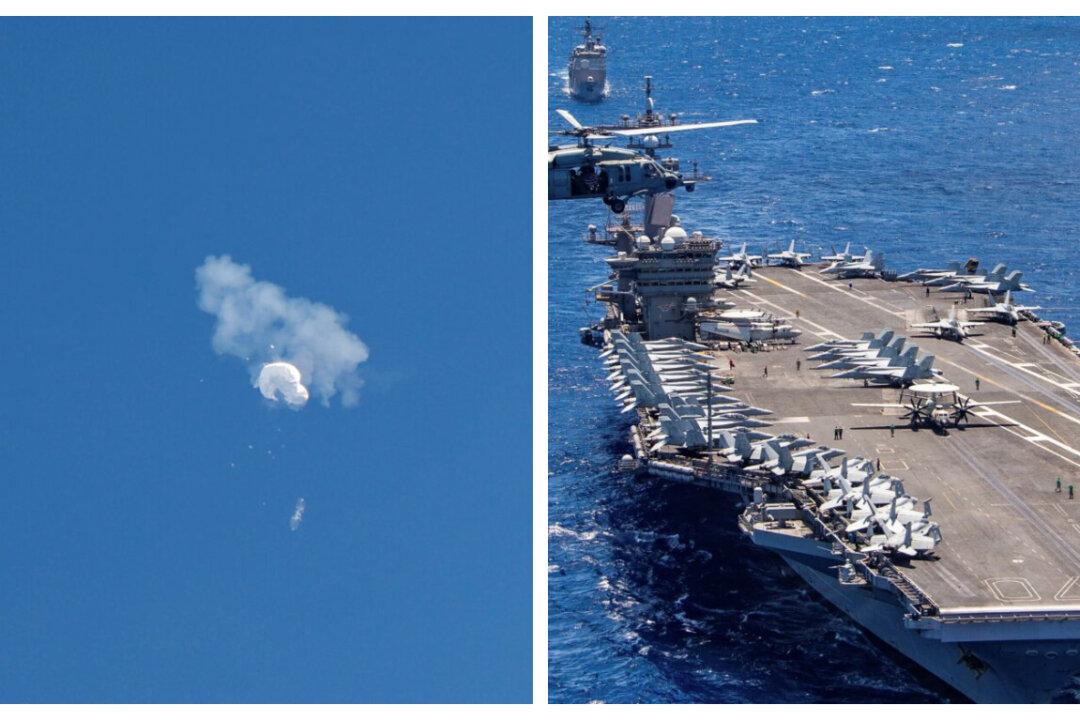Several former military officials said that the United States could face significant shortfalls if there is ever a conflict with the Chinese regime over Taiwan, coming as U.S. military jets shot down a Chinese spy balloon that drifted across the United States.
“Unfortunately, talking broadly and in overall terms, the Chinese have dramatically increased their air, sea, space, cyber, and missile capabilities in the last couple of decades,” James Anderson, acting undersecretary of defense for policy under President Donald Trump, told Fox News.





